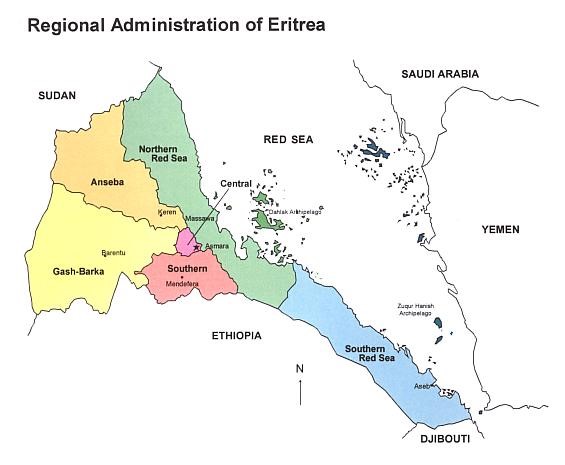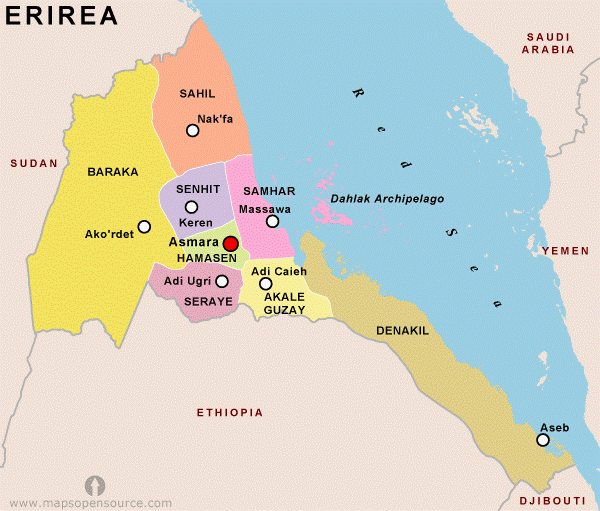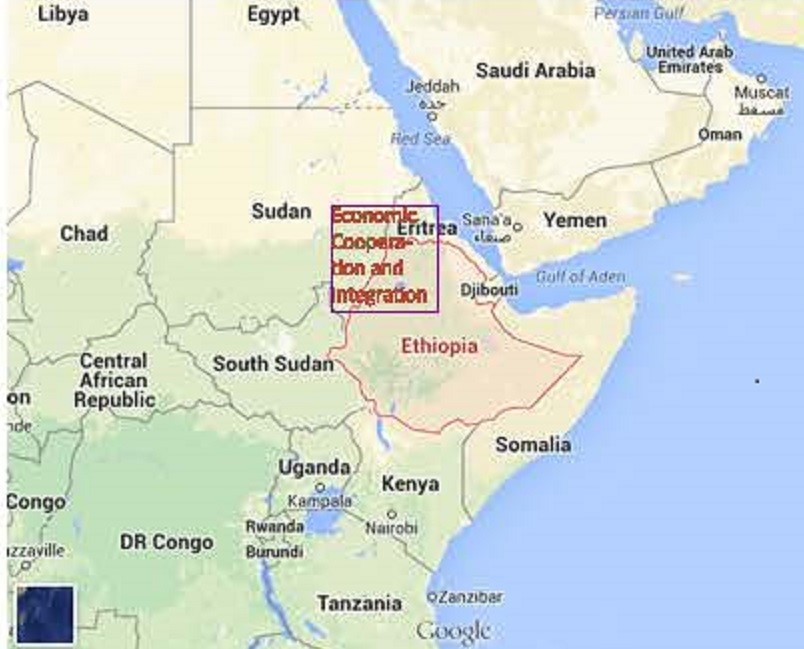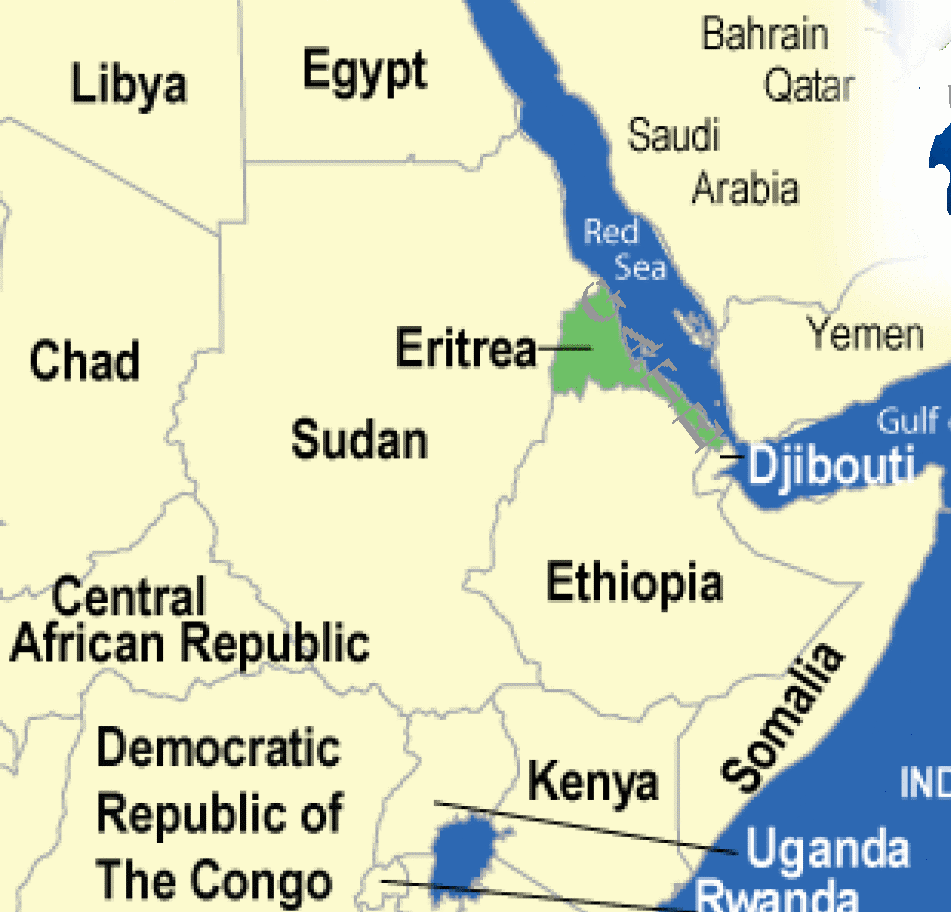04/04/2018 15:13 PM
The Process of Nation Building and State Construction under Arrest in Eritrea:
Unmasking the Evils of the Rapacious Regime
Gebre Gebremariam (Dr.)
Part III

To transform the rapacious rule into a more transparent, participatory and accountable political and economic system in Eritrea, all Eritreans should actively engage in the reconstruction of the state through a proper constitution making. A properly designed Eritrean constitution will determine the kind of incentive structure to be faced by participants  in both the economic and political markets. It will provide the foundations for the establishment and the sustenance of post-constitutional Eritrea’s institutions. Since such a constitution can only be constructed from a process in which no one entity, person or group dominates and controls the deliberations, the current PFDJ controlled approach to constitution making should first be dismantled. Hence, the first order of business for all Eritreans must be effecting political change by dismantling the current governance arrangements of the rapacious rule. When and if only this happens, will it be possible to establish a development-oriented constitutional structure. Sustainable economic growth and development in Eritrea will depend on the existence of an efficient and self-enforcing constitution. Such a new Eritrean constitution should include key provisions that guarantee economic freedoms, enhance entrepreneurship, create jobs and wealth, promote the peaceful coexistence of the different linguistic groups, and improve the abilities of all Eritreans to fully and effectively participate in nation building.
in both the economic and political markets. It will provide the foundations for the establishment and the sustenance of post-constitutional Eritrea’s institutions. Since such a constitution can only be constructed from a process in which no one entity, person or group dominates and controls the deliberations, the current PFDJ controlled approach to constitution making should first be dismantled. Hence, the first order of business for all Eritreans must be effecting political change by dismantling the current governance arrangements of the rapacious rule. When and if only this happens, will it be possible to establish a development-oriented constitutional structure. Sustainable economic growth and development in Eritrea will depend on the existence of an efficient and self-enforcing constitution. Such a new Eritrean constitution should include key provisions that guarantee economic freedoms, enhance entrepreneurship, create jobs and wealth, promote the peaceful coexistence of the different linguistic groups, and improve the abilities of all Eritreans to fully and effectively participate in nation building.
Such an institutional arrangement will create strong synergies between inclusive and plural political and economic institutions that promote the participation of the majority of Eritreans in the political and economic arenas. It will also distribute political power and wealth more broadly in the Eritrean society. Hence, the vicious cycle that was created by the strong synergies between extractive political and economic institution of the rapacious regime will be broken down and be replace by a perpetual “virtuous cycle” – a strong synergy between inclusive political and economic institutions. Once in place, inclusive and plural political and economic institutions expand and persist through a process of positive feedback.
Assuming that a successful political transition is effected and a proper constitution making is achieved, an appropriate economic growth and development strategy for post-constitutional Eritrea should be an outward-oriented and private sector-led growth. The innovation for this growth strategy emanates from the fact that global trade liberalization is believed to provide a larger market for exports so that the rate of growth of GNP will not be constrained by the limited domestic market, which otherwise, in effect, could mean stagnation of the welfare of the society at low levels. Note that Eritrea as a small state is characterized by all the consequences of smallness – limited domestic market, less diversified natural resources base, narrowly spread human capital and entrepreneurial skill, and limited technological and physical resources – and this imposes, in the first instance, a basic limit to what is possible. Since finding a niche in the international markets or penetrating the international markets is not an easy business, Eritrea will, however, need to pass through the difficult learning process before its exports gain good will or acceptance in the international markets. In this respect, post-constitutional Eritrea should give priority to a viable regional economic integration/cooperation as a learning platform for a successful international trade or equivalently, as a piece meal approach to multilateral trade liberalization.

Regional economic integration/ cooperation will offer a good opportunity for the development of the manufacturing sector in Eritrea by providing a larger and more easily accessible market for its manufactured goods. The larger regional market enables firms to exploit economies of scale and reach their optimal plant size. As this, in effect, decreases the unit cost of production and hence the unit cost of putting the product to the market, it increases the international competitiveness of the products. Moreover, the enlarged regional market is expected to encourage people to widen their horizon both in their commercial undertakings as well as in their political orientation beyond the national boundaries. The free movement of people and resources which the creation of the economic community will allow is also expected to help develop a wave of complex societal interactions among the people in the regions with interdependent specializations. Such a process ultimately will result in the development of organic solidarity (the bond that keeps modern society in tact) among the people of the region, an attribute that can help bring durable peace and security to the Horn of Africa region once and for all.
Besides, a viable regional integration/cooperation among Eritrea and its neighbors is also expected to provide an opportunity for them to organize their efforts and resources in exploiting natural resources which have cross-border significance. The Eritrean agriculture, for example, has close affinity with its immediate neighbors, especially with Ethiopia and Sudan, in agro-climatic, agro-postural and agro-production systems and hence regional co-operation in border production zones is essential and desirable. As a matter of fact, Western and South Western Eritrea, North Western Ethiopia, and Eastern and South Eastern Sudan can be defined as one big economic space (See the rectangular area indicated in the above map of the Horn of Africa). This area is served by relatively better transportation network- a network which drains the region to the Red Sea via the Eritrean ports (especially Massawa). While the strategic location of Eritrea puts it in a better position, it is still to the advantage of the three countries (i.e. Eritrea, Ethiopia and Sudan) to exploit this vast area of significant agricultural value through joint investment. Currently, there is no strong political will and commitment to realize this objective.

Furthermore, in order to better exploit its location factor endowment (its geographic location along the Red Sea Corridor, nearness to markets in Middle East and Europe, as a gate way to the Horn of Africa and Northeast Africa), there is a need for Eritrea to consider and encourage the establishment of Export Processing Zones in general and Industrial Export Processing Zones in particular in its jurisdiction accompanied by a “Free Ports” regime. Along with this endeavor, Eritrea would also need to encourage the development of entrepót trade.
For this long-term growth and development to succeed, there is, however, a need for the following to happen: (1) a strong, sustained, and credible political will and commitment at the national level; (2)durable peace and security in the region (Horn of Africa)because countries that suffer from civil strife and inter- and intra-state conflicts will not be able to participate in integration activities; (3) rule of law, democracy and good governance as necessary conditions for a meaningful dialog among member countries and to ensure the irreversibility of the economic integration process; and (4) a compatible macroeconomic policy framework that includes, among others, a healthy public finance management, credible monetary policy regime, stable exchange rate, and adequate balance of payments management. Note that when all these preconditions are fulfilled and once economic integration is achieved, there will be feedback effects that will lock-in all these preconditions and make the economic integration durable. But again, this process can only get started if and only if there will be a successful democratic political transition in Eritrea first. Hence, there is an urgent need for a revolution by a broad coalition to break the “vicious cycle” (a process of negative feedback) of absolutist and extractive economic and political institutions of the rapacious regime and replace them with inclusive and pluralist institutions, institutions that unleash and create a dynamic and perpetual “virtuous cycle” (a process of positive feedback) in post-constitutional Eritrea.
See also recent articles and Seminars by Dr. Gebre Gebremariam
ካልኦት ብ'ዶር ገብረ ገብረማሪያም ዝተጻሕፉ ጽሑፋት ሰሚናራትን ኣብ ታሕቲ ተወከሱ :-